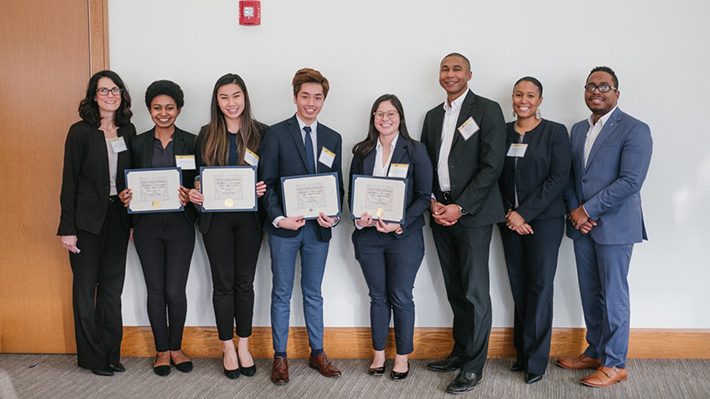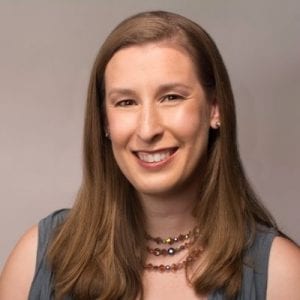Columbia Business School Talks Taxing Multinational Corporations

The first step toward social responsibility is, arguably, fair taxation. There’s just one problem—for years, multinational corporations have raced to pay the fewest taxes or avoid paying it altogether. For example, Apple employs a few hundred people in Ireland, so it falls under the .005 percent tax bracket. And Apple isn’t the only multinational company to do so.
The Muddled World of Leadership Cliches, and More – Philadelphia News

As November draws to a close, let’s take a look at some of the biggest business school stories coming out of Philadelphia business schools this week.
Three Big Leadership Clichés – and How to Rethink Them – LinkedIn
Geoffrey Garrett, Dean of The Wharton School and official LinkedIn “Influencer,” recently took to the social media site to talk about the gamut of leadership cliches that dominate the conversation around those roles.
In a conversation with a group of upper-level executives at the Wharton CEO Academy in New York, Garrett pivoted away from the following three cliches, turning them into something more modern, useful, and promising:
1.) Stick to your guns
2.) Question everything
3.) It’s a marathon, not a sprint
On sticking to one’s guns, Garrett emphasizes certain elements of 1980s corporate and political culture that found esteeming value when a leader does not waver on their principles. “Sticking to your guns is valued because it signals strength, courage and commitment under adversity, which is why we so often think about war heroes in this way,” he says.
He notes, however, that there is value in knowing when to “fold ’em” with a key Kenny Rogers reference in tow. “There is no simple score sheet to tell you when the positives from sticking to your guns become outweighed by the negatives. But the world is littered with examples where leaders wait too long to make the switch. Think General Lee’s historic defeat at Gettysburg in the American Civil War, Jeff Immelt at GE or John Chambers at Cisco,” Garrett continues.
“Most leaders will change course eventually because there is not much valor in heroic defeats. But the best leaders will change course long before the writing is on the wall. Compare the demise of Kodak with the transformation of IBM. But how do you know when the writing is on the wall? The answer is judgment, arguably the most valuable trait in a leader. It’s easy to recognize in hindsight, because good leaders make good decisions—the definition of good judgment.”
To see the rest of Garrett’s advice on leadership cliches, head over to LinkedIn.
Drexel Students Win Second Annual Diversity Case Competition – Drexel LeBow News
Students from the Drexel University LeBow College of Business brought home a brand new title as winners of the second annual Diversity and Inclusion Business Case Competition.
Drexel LeBow defeated 11 other local challenging universities in a competition with a goal to “help create a diversity training protocol for Home Away From Home, a global hotel chain,” according to the business school.

Winners from the LeBow College of Business at the second annual Diversity and Inclusion Business Case Competition / Photo via lebow.drexel.edu
The LeBow team of “Johnny Zhu, Kimberly Gain, Stephanie Arredondo, and Rachael Wright” nabbed first place with their curiously-titled “Raising Our One Family (ROOF)” strategy. Zhu explains, “ROOF stands for the overall company-wide training, which is rolled out in the form of top-down management and tailored to individual locations, corporate level, and field level. This proposal is not a mold, but a 360-integrated training approach where as a family, employees are living out the mindset of diversity and inclusion, not only to guests but to each other as well.”
To learn more about the Drexel LeBow team and the case competition, click here.
The Bizarre Bias That Affects How You Shop – BBC
The work of Beth Vallen, a researcher at the Villanova School of Business, was recently highlighted by author Martha Henriques in the BBC regarding just how pervasive “anti-fat” bias can be.
Henriques notes that overweight people tend to statistically suffer when it comes to things like job offerings, and even get less eye-contact than people of average weight and size. It is perhaps not so surprising to find that business models are often altered for overweight people.
In “Shape and Trait‐Congruency: Using Appearance‐based Cues as a Basis for Product Recommendations,” a new study authored by Vallen and colleagues Karthik Sridhar, Dan Rubin, Veronika Ilyuk, Lauren G. Block, and Jennifer J. Argo—published in the Journal of Consumer Psychology—found that overweight customers were offered more products that resembled their body types, even if the products, such as bottles of perfume, were not wearable.
Speaking with Henriques, Vallen says, “Our thinking was these subtle prejudices that lead to these effects are based on something more than superficial shape-matching.”
“We wanted to show that this was a bias that reflects the thoughts and decisions processes of all people, not just sales people.”
To read more about the study, head over to the BBC website and the Journal of Consumer Psychology.
3 Professional Life Hacks from The ‘Master of Connections’, and More – Boston News

Let’s explore some of the most interesting stories that have emerged from Boston business schools this week.
3 Professional Life Hacks from a Billionaire Introvert – MIT Sloan Newsroom
In a recent podcast with MIT Sloan School of Management Principal Research scientist Andrew McAfee, LinkedIn co-founder Reid Hoffman thoroughly explained how one person can maintain massive success despite their habits as an introvert.
Hoffman explains three simple professional life hacks that help his process, of which include:
- “Deliberately leave some room for serendipity.”
- “Find someone who knows you well enough to refer you to me and knows me well enough that I care about the reference.”
- “Embrace your skillset.”
On the latter, Hoffman says:
“What I learned was that private company boards are a very good use of my skillset because more or less … they go ‘here’s what we’re working on. That’s like sport, that I’m like ‘oh, I enjoy this.’ How do we solve a customer acquisition problem, how do we solve an executive hiring problem, how do we solve a competition problem, how do we solve a need to reinvent the product problem; all of these kinds of things. That’s what makes this game hard, and I enjoy that.”
You can read more from the Hoffman podcast here.
Work Your Magic: Erica Feldmann ’12MA Makes Witches Her Business – Simmons Blog

Erica Feldmann ‘12MA, Hauswitch Home + Healing’s Head Witch in Charge
The Simmons Blog recently profiled Hauswitch Home + Healing’s Head Witch in Charge Erica Feldmann, ‘12MA, who founded HausWitch to be a “hyper-feminist, hyper-local and hyper-inclusive” space for local, independent makers, crafters, and witches to meet, shop, and build community.
The Salem, MA-based Feldmann “focused her gender/cultural studies degree on the oppression of witches from a feminist perspective” so her use of the word—which one acronym could mean “Woman In Total Control of Herself”—and her choice of location are both very deliberate.
“I think the word ‘witch’ in its essence is female. I think it’s about power and challenging the dominant culture. Who better to do this than the witch? Not from a place of being a victim, but from a place of strength.”
Feldmann adds, “Being a woman in business, I literally surround myself with other women who are very invested in the project of lifting each other up.”
You can read more about Feldmann and HausWitch here.
Productive Slacking with Anirudh Dhebar – Babson Blog
Babson College F.W. Olin Graduate School of Business Professor of Marketing Anirudh Dhebar recently unpacked an FT article entitled “Managers can draw a line between slack and slacking” as part of a weekly informal student chat he engages in at the Olin Café on Mondays evenings and Tuesday afternoons “to address things that don’t get touched upon in class.”
Dhebar posits whether “it is better to slack or should we often be slacking—a time taken to unwind.” In other words, is it healthy for managers to incorporate slacking into everyone’s daily schedule or should employees practice self-care and slack off the clock?
“If you think it is the managers responsibility to inculcate a culture of slack, why should it not be the individual’s responsibility or the company’s as a whole?”
Dhebar describes their day as a series of different slacks. For instance, “Class is a form of slack where [I] push students to think beyond the case and [my] students’ perspectives make [me] think differently.”
You can read more about Dhebar’s perspective in the Babson Blog.
Gies Caterpillar Partnership Announced, and More – Chicago News

Let’s explore some of the most interesting stories that have emerged from Chicago business schools this week.
Government Got You Worried? It May Be Affecting Your Shopping Habits – Kellogg Insights
Northwestern Kellogg School of Management doctoral candidate Jessica Gamlin, along with professors of marketing Ping Dong and Aparna Labroo, found that “when consumers are thinking about politics, they are drawn to products they view as utilitarian rather than pleasurable.” In other words: “the more you fret about the state of the government, the more spartan your shopping cart might be.”
Speaking with Kellogg Insights, Gamlin explains her fascination with the dissonance between a seemingly banal meal-kit ad placed amidst a divisive political debate, “I was curious about why advertisers were choosing these different podcasts to advertise on in different quantities.”
Labroo also adds, “A desire for the government to do things in a more responsible manner translates into higher-order goals for the consumer, herself, to be responsible in her actions.”
Dong adds, “The reason is the more people think the political system is irresponsible, the more the desire to see the government be responsible is activated, and therefore, the more the consumer’s own goal is also activated.”
You can read more about the research here.
Caterpillar Invests in Students’ Futures with Illinois Business-Engineering Program – Gies College of Business News
As part of a decades-long relationship between the University of Illinois and the Peoria-based construction equipment manufacturer, Caterpillar has recently invested in the Gies College of Business and the College of Engineering’s new collaborative Hoeft Technology & Management undergraduate minor, in which “teams of business and engineering students learn and work together to develop comprehensive solutions to real-world problems.”
In the announcement, Caterpillar CTO and VP Tom Bluth says, “Becoming an affiliate of the program is a natural fit for us, because the intersection of business and engineering is at the core of how we develop the products and solutions that benefit our customers.
“We’re also proud to have been connected to the T&M Program since its start: A member of our Caterpillar family had the vision to create the program and the passion to make it possible.”
You can find out more about the Gies Caterpillar partnership here.
Six Marketing Fundamentals Founders Need to Succeed – Chicago Booth Magazine

Catherine Littell ’08
Chicago Booth Magazine recently profiled Catherine Littell (’08), whose Care Concierge LLC has taken an innovative approach to senior-care consulting. Littell, an Entrepreneur-in-Residence at the James M. Kilts Center for Marketing, discussed her “multipoint approach to launching a business in the digital age.”
- Know your customer. “There are a lot of great ideas out there. But can you take that idea and create a product for the right customer at the right time?”
- Hone your message. “It’s really about understanding your customer and creating an authentic experience.”
- Let the data speak. “Data will tell you whatever you want it to, good or bad, so make sure you use it to inform rather than just to affirm your decisions.”
- Run the numbers. “Starting a business is about gut feelings, but knowing the numbers can help you figure out whether or not a business is profitable or can be profitable.”
- Be comfortable with change. “You’ve got to be able to trust your gut and say, ‘If it works, great, and if it doesn’t, let’s change tactics and move forward.’”
- Hire the right team. “If you find people who have drive and passion, plus they love your product and can define what you do and stand for, that’s really powerful.”
You can read the full article here.
DMSB Keynote Speaker Encourages MBAs, New Startups, and More – Boston News

Let’s explore some of the most interesting stories that have emerged from Boston business schools this week.
Life is Like a Venture Investment, Biotech Entrepreneur Tells Business Graduates – D’Amore-McKim Blog
The Northeastern University D’Amore-McKim School of Business selected biotech entrepreneur Dr. Gerald Chan as the keynote speaker at the DMSB graduation ceremony last month.
Dr. Chan, whose private investment firm Morningside Group funds “life sciences startups that are working to discover new ways to treat disease,” implored the assembled crowd at Matthews Arena to “live a life that makes themselves and their loved ones proud” even if “life can be at times so scary and at other times so exhilarating.”
Dr. Chan shared a personal anecdote about his father’s refusal to accept a job at casino on ethical grounds: “Had he accepted that offer, our family would have become financially richer. But because he acted on his ethical principles against his own economic interest, my family can stand tall today.”

D’Amore-McKim School of Business graduates, during last month’s ceremony / Photo via damore-mckim.northeastern.edu
You can read the full article here for a complete overview of the ceremony.
Winning Paper Shows Network Effects Fuel Business Value and Upend Strategy – Questrom School of Business Blog
BU Questrom School of Business‘ Marshall Van Alstyne recently co-authored new research that finds that “platform businesses” that depend on high numbers of users like Microsoft, Apple, Uber, Google, and Amazon scale much faster by moving value creation from “internal production to external orchestration.”
In “Platform Ecosystems: How Developers Invert the Firm,” Van Alstyne and his co-authors conclude that this approach will reverberate through “every part of a business, from marketing to operations to human resources.”
“Instead of a firm doing all its own marketing, consumers can add value through viral marketing. Instead of AirBnB incurring operating costs of a hotel stay, ecosystem partners bear those costs.”
“Instead of hiring employees inside the firm, platforms rely on freelancers outside the firm. In each of these instances, the value-creating activity shifts from inside to outside the firm. This shift affects all of the traditional business functions. It also has profound implications for fair division of wealth in society.”
You can read the full article here and the complete paper here.
25 MIT Startups To Watch – MIT Sloan Newsroom
On Saturday, September 8, Bill Aulet, Managing Director of the Martin Trust Center for MIT Entrepreneurship told the crowd at the MIT Kresge Auditorium, “We’re not just going to be doing another dating app.”
“We’re going to be doing things like addressing inclusion in society, making a more informed citizen throughout the world, cybersecurity, mental health, urbanization, improving ed-tech, improving health care. These are significant problems that the brightest people in the world should be working on, and those people are MIT students.”
The ambitions Aulet spoke about were created from the 25 startups built within the MIT delta v accelerator, which you can check out here.
Why U.S. News & World Report Changed Its Rankings Methodology

For prospective MBAs, the most difficult step towards a business school degree is knowing where to start. And for many, the most obvious is researching the near-endless amount of college ranking sites. After years of scandals and much-publicized doubts, however, the authority of these rankings may be in question.
In a recent Philadelphia Magazine op-ed, writer Sandy Hingston asks, simply, “Can We All Agree Now That College Rankings Are Bunk?”
Hingston’s critique, which highlights in relative inexactness of the college ranking sites, is not the first of its kind. In 2011, popular New Yorker writer Malcolm Gladwell wrote wrote about his issue with college rankings. In “The Order of Things,” Gladwell notes that the outcomes of students sometimes do not match college reputations.
Principally, Gladwell, the author of the massively popular 2008 book Outliers: The Story of Success, found fault in how publications like U.S. News & World Report conducts rankings. He writes, “the magazine sends a survey to the country’s university and college presidents, provosts, and admissions deans (along with a sampling of high-school guidance counselors) asking them to grade all the schools in their category on a scale of one to five.”
In regards to the scoring system, Gladwell cites numerous incidents that say reputation weighs too heavily. This is important considering that personnel often do not know what other schools are actually like. To illustrate, he brings up a different ranking from the time, with much different results:
“In an article published recently in the Annals of Internal Medicine, Ashwini Sehgal analyzed U.S. News’s ‘Best Hospitals’ rankings, which also rely heavily on reputation ratings generated by professional peers. Sehgal put together a list of objective criteria of performance—such as a hospital’s mortality rates for various surgical procedures, patient-safety rates, nursing-staffing levels, and key technologies. Then he checked to see how well those measures of performance matched each hospital’s reputation rating. The answer, he discovered, was that they didn’t. Having good outcomes doesn’t translate into being admired by other doctors. Why, after all, should a gastroenterologist at the Ochsner Medical Center, in New Orleans, have any specific insight into the performance of the gastroenterology department at Mass General, in Boston, or even, for that matter, have anything more than an anecdotal impression of the gastroenterology department down the road at some hospital in Baton Rouge?”
He goes on to say, “reputational ratings are simply inferences from broad, readily observable features of an institution’s identity, such as its history, its prominence in the media, or the elegance of its architecture. They are prejudices.”
In addition, Gladwell notes important economic distinctions that many college ranking sites ignore. For the sake of simplified ranking, small private schools are compared to massive public institutions and scored equally. But doing so overlooks the economic makeup of enrolled students, funding, and much more.
A Modern Change for U.S. News
Seven years later after Gladwell’s critique, U.S. News & World Report continues to refine its rankings method. The publication’s new changes aim to emphasize economic mobility. This comes just one year after Politico revealed that the upper-echelon schools continually reward students that are already wealthy. That discovery may not be “groundbreaking,” but the data is still jarring. Many of the country’s most well-known institutions enroll more students that come from the top 1 percent of income-earning families than the bottom 60 percent of earners.
Why is this important and why did U.S. News & World Report need to change? Like Gladwell said seven years prior, prejudices feed the rankings and the economics factors are biased. And the amount of inequality it expanded may have been profound.
The Politico study outlined these key factors in the previous U.S. News ranking formula:
- Student Performance
- Lower Acceptance Rates
- Higher Performance on Surveys
- Alumni Donations
These factors weigh heavily for students from more affluent backgrounds. U.S. News, like many of its popular ranking competitors—such as the Financial Times and Bloomberg—rely on similar scoring systems, which often left the economically disadvantaged out of the equation.
The aforementioned 2017 Politico report points to the lengths some schools and state governments went to meet the U.S. News standards:
“Colleges go to great lengths to rise in the rankings. The president of one school ranked in the top 20 said the college caps classes at 19 students, simply because the rankings reward schools for keeping classes under 20 students. In some states, the rankings are built into accountability systems for university presidents. Arizona State trustees put a bonus pegged to the rankings in the president’s contract. In Florida, Gov. Rick Scott set a goal to ‘achieve the first top-10 research public university and a second-ranked public university in the top 25.'”
Robert Morse, U.S. News Chief Data Strategist, says of the changes; “There is an active and ongoing debate about how to best measure quality in education, and we pay close attention to that debate. Over time, our ranking model has put more emphasis on outcomes measures … As part of this evolving process, we’ve wanted to measure whether schools were successful at serving all of their students, regardless of economic status.”
The publication will begin accounting more for social mobility and rewarding of Pell Grants. As well, Morse says, schools that enroll a higher percentage of lower-income students will get more credit for graduation rates. In total, “13 percent of a school’s rank is now dependent on the economic diversity of its campus.”
Will Other College Ranking Sites Follow?
The changes for U.S. News‘s rankings may cause a slow sea change for its competitors. For its undergraduate ranking, SAT/ACT scores now factor less in the overall score. This, like many of the highlights indicated above, is because standardized tests are highly correlative with income. The acceptance rate boost is being completely removed as well.
The dismissive stances from the likes of Hingston and Gladwell likely will not be re-mediated immediately. After all, college ranking sites will likely remain among most popular resource for school research. However, a more modern evaluation can pay dividends in the long-term. And for U.S. News‘ prime competitors, following suit may be an unavoidable remedy.
The next annual U.S. News ranking of the country’s best business schools will arrive early next year. Whether the new changes will weigh heavily in the rankings remains to be seen.
